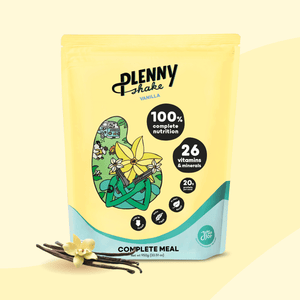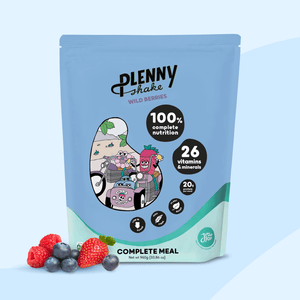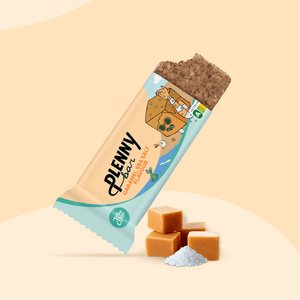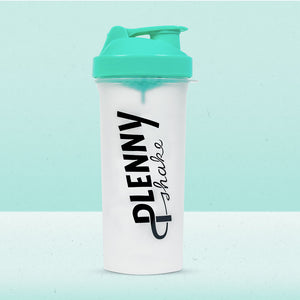
Why work out?
Physical activity has so many health benefits, it’s one of the best things you can do for both your mental and physical health (1). An active lifestyle helps prevent physical disease and will even add years to your life. Suffering from depression, anxiety or stress? Exercise is a powerful tool to overcome that, too! With 172 health benefits, our meals still win in sheer numbers, but exercising is a close second 😉 . So perhaps the question we should ask is: why wouldn’t you work out?
How to prep for a workout
What you do before and after a workout can play a huge part in your results of the actual workout. To get the most out of your efforts, here’s what you need to do.

Get enough sleep
According to worldwide data, not one out of the 48 countries that participated, manages an average of the recommended 8 hours of sleep a night [2]. However, improving your sleep will not only help you improve mental health, a good night’s sleep is also the unsung hero of muscle growth and fat loss! It might even be the reason you see other people in the gym improving faster than yourself. Besides, lack of sleep is a productivity killer, making you less energetic and motivated to crush the tasks you want to be crushing. As Dr. Charlene Gamaldo, Professor of Neurology and medical director at Johns Hopkins Center for Sleep, says: “You have to prioritize sleep”. [9] If you need some help getting better quality sleep, read our article. Spoiler alert: one of the best ways to improve your sleep is to actually exercise!
(Properly) fuel your workout
According to Master of Science and Registered Dietitian Lauren Manganiello, it’s important to fuel your body before a workout to get optimal results. [3] Working out on an empty stomach will cause your body to take the energy it needs from your muscle mass - which you are actually trying to build (even if you’re trying to lose weight).
So what should you eat? And when should you eat it? Many people say many things, especially self-professed gym rats in the locker room can make things even more confusing with their specialized routines.
One thing is for sure though: carbs are your body’s main source of fuel during high-intensity workouts. The body converts carbohydrates into glycogen, which is stored in your muscles and used to power your workout. A powered workout results in better caloric expenditure (burning more calories) and more muscle growth compared to working out in a ‘fasted state’ (on an empty stomach). [10] [11]

Eat 1-2 hours before your workout to properly fuel it [3]. How about a Plenny Drink? One drink contains 44,6 grams of carbohydrates!
Hydration is just as important. Losing just 2% of your body weight by sweating can make the workout feel significantly harder and make it harder for your body to recover from it afterwards [12]. Carlson-Phillips, M.S., R.D., and vice president of nutrition and research at EXOS recommends drinking 15 to 30 ml (½ to 1 ounce) of water per 500 grams (pound) of bodyweight per day. So if you weigh 80 kg, you should drink 2,4 - 4,8 liters per day! Fortunately, the Plenny Drink already contains 330 ml of fluids 💧
Warming up
According to a study done by Sports Scientists affiliated with Fifa, a proper warm-up before training or games, like the one developed especially for soccer players by Fifa, will result in 40% less knee, ankle, hamstring, and hip or groin injuries. [13] A good warming-up will dilate your blood vessels, making sure your muscles are optimally supplied with oxygen. It can even save lives! Keep reading to find out how….

The main reason to warm-up is to increase your body- and core muscle temperature. This has multiple benefits [4]:
- Blood circulation improves, making more oxygenated blood available to provide the muscles with the necessary energy.
- The nerves that stimulate the muscles to move are activated, which increases the conduction velocity speed. Increased conduction velocity speed results in improved muscle dynamics! Trust us, that’s a good thing.
- Lung ventilation is increased, allowing for better oxygen absorption and carbon dioxide separation (inhalation and exhalation).
- The sensitivity of joints, tendons and your primary senses increases, which benefits coordination and will keep you from misstepping and falling off a cliff.
How to recover from a workout
You’ve sweated buckets, logged your run, gave that punching bag what it had coming, or endured the mental anguish of a bootcamp or CrossFit sesh. Well done, you! Now comes the fun part: the recovery period. The recovery period - as it turns out - is crucial to getting the results you want. Luckily, this basically comes down to our three favourite things in the world: eating, drinking, and resting! Let’s get into it.

Cool down
According to the American Heart Association, cooling down after a workout is just as important as warming up [8]. After physical activity, your heart is still beating faster than normal, your body temperature is higher, and your blood vessels are dilated (remember how we discussed that in the part about the warming-up?). Bluntly stopping all activity after a high intensity training could make you feel sick, or even make you pass out. Cooling down will prevent that from happening and has some other benefits as well:
- Reduces stress and strain on your heart as it goes back to beating at a normal pace
- Prevents dizziness and the uncomfortable feeling of blood pooling in your extremities
Based on the workout you do, there can be specialized cooling down exercises - just as there are for warming up. If you have a coach or trainer you can ask for advice on that, but you can also follow these highly scientific super tips for cooling down:
- Vacuum your living room
- Do your laundry
- Dance around the house
No but seriously, any stretch, exercise, or movement that can help help your body transition from working hard to hardly working is a good cool down exercise. Walking is a classic! It’s also good to stretch a bit when you’re cooling down because your limbs, muscles and joints will still be warm. Stretching can help reduce the buildup of lactic acid, which can lead to muscle cramping and stiffness. [14]
Hydrate
If you do it right, working out should make you sweat - profusely. This means you’re not just losing water but also electrolytes: minerals that are electrically charged (sodium, calcium, potassium, chloride, phosphate, and magnesium). They’re in your blood, urine, tissue, and other body fluids and they help balance the amount of water in your body and pH levels. But they also move nutrients into your cells and waste out of them [19]. So you can imagine it’s important to replenish them.
There’s a lot being said about what to drink after a workout, since just plain water doesn’t seem to cut it - it doesn’t contain any carbohydrates needed for fuel replenishment (glycogen), no protein for muscle repair, and no electrolytes for fluid retention. [15] But guess what? Chocolate milk has all those things! Traditional sports drinks might contain the carbs and electrolytes, but don’t contain any protein, and according to a 2010 study that’s why chocolate milk is a better choice than traditional sports drinks. [16] If you’re looking for a vegan alternative for chocolate milk, check out our Plenny Shake Chocolate. It has all the benefits of chocolate milk and more!

Another alternative to plain old water is beer. Wait what? Yes, beer! Beer contains carbs and electrolytes, and studies have shown that it doesn’t negatively affect your hydration levels [17]. But don’t start chugging sixers like it’s your best friend’s wedding: moderation is key. Too much alcohol suppresses the anabolic response of your muscles and could therefore have a negative effect on the recovery process. [18]
Refuel
Like a pre-workout meal, a post-workout meal can help you get the most out of your workout. After all, we want to get the most out of our efforts right? Like we discussed earlier, during a workout your muscles will use glycogen for fuel. How much depends on the type of training of course, but generally endurance sports (swimming, running) will deplete more glycogen than resistance training (lifting weights and other strength training). According to a 2008 study consuming 0.5–0.7 grams of carbs per pound (1.1–1.5 grams/kg) of body weight within 30 minutes after training results in proper glycogen resynthesis (or ‘reproduction’ for y’all simpler folks). [21]
Working out also causes muscle protein breakdown (MPB): damaging your muscles [20]. The rate at which this breakdown occurs depends on the type of exercise and the intensity, but research suggests that you should consume 0.14–0.23 grams of protein per pound of body weight (0.3–0.5 grams/kg) within 30 minutes after the workout. If you want to dive deeper into your necessary daily protein intake, check out our article ‘How much protein do I need’.
An example: if you’re a 75 kg person, you’ll need about 100 gr of carbs and 25 grams of protein to recover properly. When you consume carbs and protein at the same time you will stimulate insulin secretion, which promotes glycogen synthesis - resulting in even better recovery results! [22] A good way to combine carbs and protein in one meal is with Plenny Pot [available in the US soon]: one meal of our creamy Cajun Pasta, for example, contains 45 grams of carbs and 20 grams of protein. With some fruit (banana, pineapple, grapes, mango, apple, or figs) for desert, you’ll get the perfect nutrients for optimal recovery!
Rest your bones
It’s important to keep in mind that working out basically means exhausting your body – your energy stores are depleted, your muscles and other tissues are broken down and your body becomes fatigued. So you need to give your body time to recover - you can easily overdo it. Did you know there’s actually something called Overtraining Syndrome [6]? It’s a state of physical fatigue and underperformance caused by, well, overtraining. Generally speaking, athletes train to increase performance. Performance increases are achieved by increasing the intensity of the training, but especially in endurance sports (running, swimming) there’s a fine line between achieving maximum results and going too far [7].
More reasons why resting is important:
- Resting properly avoids fatigue. If you don’t give your muscles enough time to recover your glycogen stores won’t have been replaced which will result in muscle fatigue and soreness which will lead to decreased performance.
- Resting reduces risk of injury. Overtraining your body can result in injuries caused by falling down, dropping a weight, or taking a wrong step - into a ravein, for example. Overtraining can also cause strains, sprains, knee injuries, elbow injuries or back injuries, which can result in having to take weeks of doctor-ordered rest. So take it easy, tiger.
- Resting supports healthy sleep. Regular physical activity will improve your sleep, but you can overdo it. Exercising increases the production of hormones like cortisol and adrenaline, which can give you energy [23]. However, constant exercise will cause an overproduction of these hormones and will only cause fatigue and exhaustion.
How long you should rest after working out depends on the workout and your physical fitness. It’s best to talk to a professional to make sure you’re getting the rest you need, but a rule of thumb is to take one day of rest after a day of working out.
“That’s cool guys, but maintaining a healthy lifestyle (or even working out at all) is easier said than done...”
Sure, we get that: we all have rent or mortgages, not to mention relationships to work on, work around the house that needs doing. Not to mention grocery shopping, cooking…. Oh wait. We already took care of that with our easy, quick, and tasty nutritionally complete meals! So really it’s just a matter of prioritizing and optimizing. Are your physical and mental health important to you? Yes? Then prioritize! Are you short on time and want to make the most of your workouts? Then optimize! Fortunately, we can help you with both 💪
If you need some help to stop procrastinating, we have a hands-on guide with practical tips for you. Done procrastinating and ready to adopt that new active lifestyle? We discussed exactly how to do this in our article on forming habits!
Sources
1) Craft, L. and Perna, F. (2004) "The Benefits of Exercise for the Clinically Depressed", The Primary Care Companion to The Journal of Clinical Psychiatry, 06(03), pp. 104-111. doi: 10.4088/pcc.v06n0301.
2) Sleep Cycle (2014). New Zealand got the most sleep of all countries. https://www.sleepcycle.com/wp-content/uploads/2014/12/November-World-of-Sleep.pdf
3) 10 Things to Do Before, During and After Every Workout | Fitness | MyFitnessPal (2018). Available at: https://blog.myfitnesspal.com/10-things-to-do-before-during-and-after-every-workout/ (Accessed: 8 February 2021).
4) Dit zijn de effecten van een warming-up (2020). Available at: https://www.runnersworld.com/nl/training/looptips/a22736222/warming-up/ (Accessed: 8 February 2021).
5) Warm-Ups, Cool-Downs, What Works, What Doesn’t (Published 2017) (2017). Available at: https://www.nytimes.com/2017/03/08/well/move/warm-ups-cool-downs-what-works-what-doesnt.html (Accessed: 8 February 2021).
6) Kreher, J. and Schwartz, J. (2012) "Overtraining Syndrome", Sports Health: A Multidisciplinary Approach, 4(2), pp. 128-138. doi: 10.1177/1941738111434406.
7) How to Identify (and Recover from) Overtraining (2018). Available at: https://www.runnersworld.com/health-injuries/a25171095/overtraining-syndrome/#:~:text=One%20of%20the%20most%20common,an%20important%20part%20of%20training. (Accessed: 8 February 2021).
8) Warm Up, Cool Down (2021). Available at: https://www.heart.org/en/healthy-living/fitness/fitness-basics/warm-up-cool-down (Accessed: 8 February 2021).
9) Sleep Expert Dr. G on the Weight Loss-Sleep Connection | Fitness | MyFitnessPal (2018). Available at: https://blog.myfitnesspal.com/sleep-expert-dr-g-on-the-weight-loss-sleep-connection/ (Accessed: 9 February 2021).
10) 13 Ways to Get the Most Out of a Workout, According to Research (2021). Available at: https://time.com/4237126/13-ways-to-get-the-most-out-of-your-workout-according-to-research/ (Accessed: 9 February 2021).
11) How to Fuel Your Workout (2020). Available at: https://www.eatright.org/fitness/exercise/exercise-nutrition/how-to-fuel-your-workout (Accessed: 9 February 2021).
12) Popkin, B., D'Anci, K. and Rosenberg, I. (2010) "Water, hydration, and health", Nutrition Reviews, 68(8), pp. 439-458. doi: 10.1111/j.1753-4887.2010.00304.x.
13) Warm-Ups, Cool-Downs, What Works, What Doesn’t (Published 2017) (2017). Available at: https://www.nytimes.com/2017/03/08/well/move/warm-ups-cool-downs-what-works-what-doesnt.html (Accessed: 16 February 2021).
14) Keil, Mackenzie, "Have we been stretching the truth? The effects of stretching post exercise and delayed onset muscle soreness" (2019). Creative Components. 203. https://lib.dr.iastate.edu/cgi/viewcontent.cgi?article=1291&context=creativecomponents
15) Chocolate Milk as a Recovery Drink - (2018). Available at: https://exsci.cuchicago.edu/chocolate-milk-recovery-drink/ (Accessed: 16 February 2021).
16) Ferguson-Stegall, Lisa; McCleave, Erin; Doerner, Phillip G. III; Ding, Zhenping; Dessard, Benjamin; Kammer, Lynne; Wang, Bei; Liu, Yang; and Ivy, John L. (2010) "Effects of Chocolate Milk Supplementation on Recovery from Cycling Exercise and Subsequent Time Trial Performance," International Journal of Exercise Science: Conference Proceedings: Vol. 2 : Iss. 2 , Article 25. Available at: https://digitalcommons.wku.edu/ijesab/vol2/iss2/25
17) Jiménez-Pavón, D. et al. (2015) "Effects of a moderate intake of beer on markers of hydration after exercise in the heat: a crossover study", Journal of the International Society of Sports Nutrition, 12(1). doi: 10.1186/s12970-015-0088-5.
18) Parr, E. et al. (2014) "Alcohol Ingestion Impairs Maximal Post-Exercise Rates of Myofibrillar Protein Synthesis following a Single Bout of Concurrent Training", PLoS ONE, 9(2), p. e88384. doi: 10.1371/journal.pone.0088384.
19) Topics, H. (2020) Fluid and Electrolyte Balance: MedlinePlus, Medlineplus.gov. Available at: https://medlineplus.gov/fluidandelectrolytebalance.html (Accessed: 16 February 2021).
20) Kumar, V. et al. (2009) "Human muscle protein synthesis and breakdown during and after exercise", Journal of Applied Physiology, 106(6), pp. 2026-2039. doi: 10.1152/japplphysiol.91481.2008.
21) Kerksick, C. et al. (2008) "International Society of Sports Nutrition position stand: Nutrient timing", Journal of the International Society of Sports Nutrition, 5(1). doi: 10.1186/1550-2783-5-17.
22) C, P. et al. (2010) "The role of post-exercise nutrient administration on muscle protein synthesis and glycogen synthesis", Journal of sports science & medicine, 9(3), p. Available at: https://pubmed.ncbi.nlm.nih.gov/24149627/ (Accessed: 16 February 2021).
23) Australia, H. (2018) Cortisol, Stress and your Health, Blog.hif.com.au. Available at: https://blog.hif.com.au/healthy-lifestyle/cortisol-stress-and-your-health#:~:text=While%20exercise%20can%20reduce%20your,don't%20overdo%20the%20exercise.
 Everything You Need In One Meal
Everything You Need In One Meal
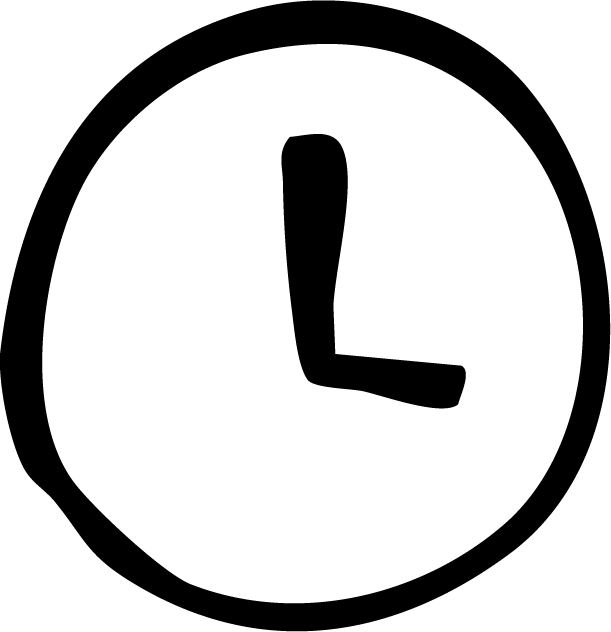 Stay Full For 3-5 Hours
Stay Full For 3-5 Hours




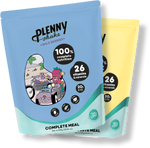
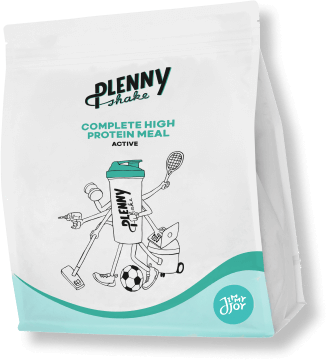
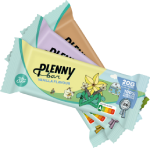

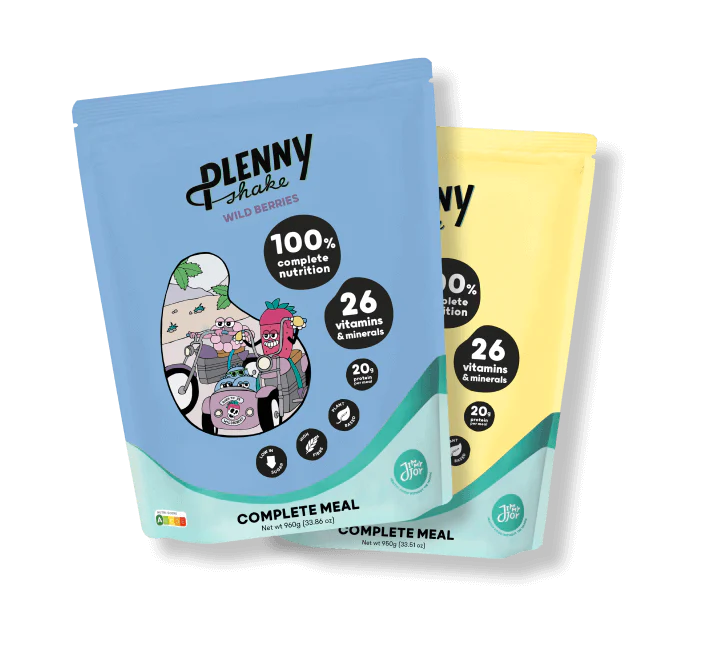

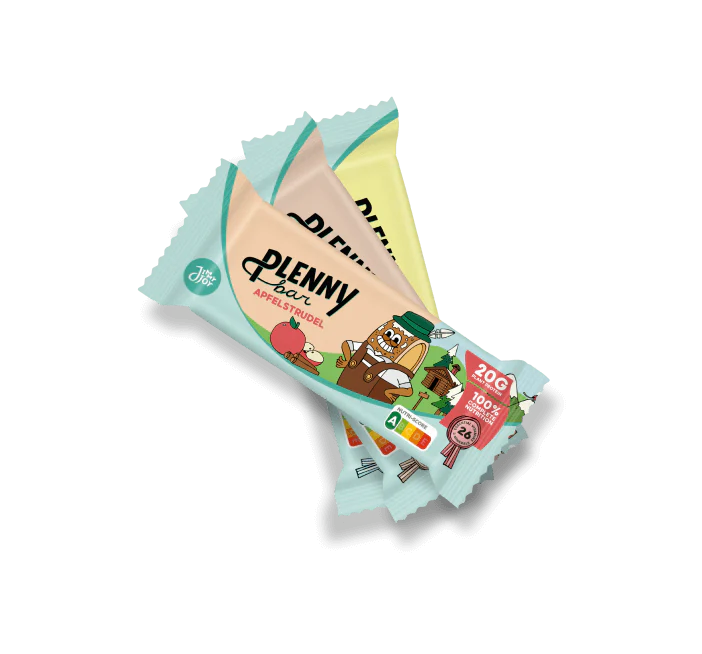
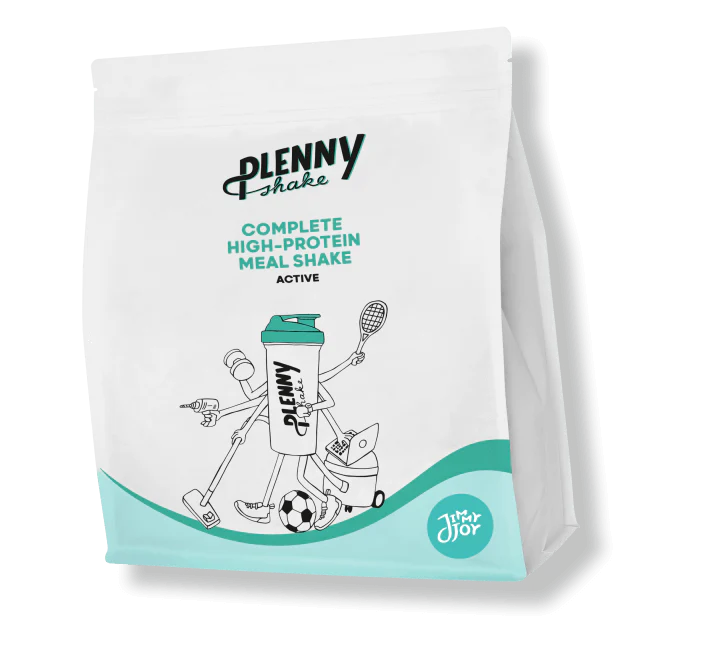

 Product added to cart
Product added to cart

